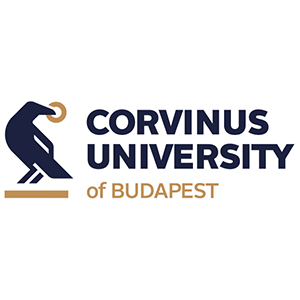


Research philosophy
The essence of the Center's research
conception and the novelty of its approach lies in its integration of research
and study of Hungary's foreign policy with the newest results of the international
Cold War research that has become increasingly intense since the beginning of
the 1990's. Besides the emphasis on the comparative feature of the research,
this is reflected first of all in the aim of analyzing what the documents, information
and new interpretations based on the systematic exploration of the Hungarian
archival sources can contribute to the authentic reconstruction of the global
history of the Cold War.
Due to this approach we were able to discuss the international context of the
1956 Hungarian revolution, with special regard to the role of the Soviet leadership.
However, our research projects aimed at the examination of Hungary's international
role in the Cold War hitherto conducted with very modest material support, could
already provide several important and often surprising contribution to the general
history of the period. Just to mention a few of them: it became known to the
international public through a Hungarian document published in the CWIHP Bulletin
No. 10 (1998). that the idea to form Cominform in 1947 was conceived in Moscow
as early as February, 1946; hence the establishment of this organization can
no longer be regarded simply as a Soviet reaction to the Marshal Plan. Similarly,
the decisive role of the Chinese leadership in the Vietnam war, that had been
only suspected previously, was finally proved by secret Soviet information contained
by contemporary Hungarian documents. The reports on the Moscow visit of Kádár
in November, 1964, published in the 1998 Yearbook of the 1956 Institute contained
significant novel information concerning the history of Khrushchev's fall and
the subsequent Chinese attempt for rapprochement with the new Soviet leadership.
The favorable Hungarian conditions concerning archival research make it possible
for Hungarian research projects coordinated by the Center to significantly advance
the international reconstruction of the history of the Cold War.
There have been important research activities at other Hungarian academic institutions in the recent years, which have contributed in numerous fields to fill the blank spots of contemporary history. Thus we know now much more about the European peace settlement following the Second World War, the Soviet economic penetration, the international context of the show trial of László Rajk in 1949, the Hungarian-Soviet and the Hungarian-Yugoslav relationship during the nineteen-forties and the fifties, just to mention the most important subjects. This research has, however, been little known within the international community of scholars. It is one of the aims of the Center, therefore, to support the integration of these findings with international scholarship.
Working philosophy
Besides its director, the Center
has only one research coordinator. The commission and financing of the researchers
participating in the given projects depend on the current financial possibilities
of the Center. The Center seeks to raise the necessary funds from Hungarian
and foreign foundations, research funds and last but not least from the regular
support of sponsors with special regards to foreign enterprises and joint ventures
settled in Hungary, as well as Hungarian private companies with significant
international interests.
The Center follows new philosophy concerning the use of financial means that
will not come primarily from state budget sources: it is our aim to offer support
for every Hungarian researcher conducting important basic research in the field
of Cold War history, regardless of his/her institutional affiliation. Primary
importance will be given to the members of the younger and middle generation
of historians and Ph.D. candidates who are interested in this topic. One of
the main goals of the Center is to promote the international recognition of
Hungarian research and sources. On the basis of voluntary association and cooperation,
the Center seeks to harmonize the work of the different academic institutions
and rationalize the use of financial sources.